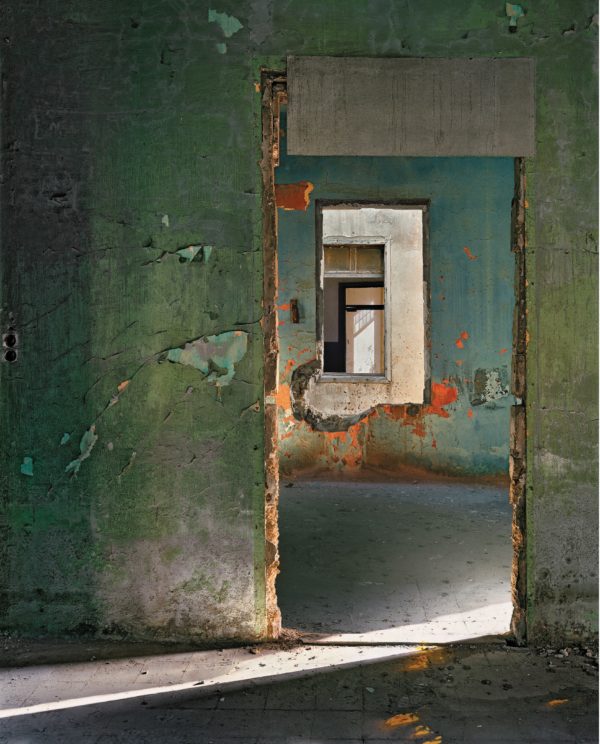
Photographer Robert Polidori‘s debut show at Paul Kasmin Gallery also marks the first time that his “Dendritic Cities,” a body of work begun in 2007, is being shown in the US.
The term “dendritic” is taken from the branching extensions of a cell structure, and is used to describe cities that are “auto-constructed” as a result of industrialism (as oppposed to pre-planned), in places such as Mumbai, Rio de Janeiro, and Amman, Jordan.
The show features three large-scale photographs taken in India, including 60 Feet Road, in which 22 photographs are combined into one work that spans nearly the entire length of a gallery wall. Amrut Nagar comprises four separate panels which provide a view of a heavily populated mountainside in the Mumbai suburb taken from a single vantage point.
In the back section of the gallery hangs a selection of equally compelling images from Polidori’s 2010 series “Hotel Petra,” in which he explored the ruined interior of an abandoned hotel in Lebanon. Once a grand luxury hotel, Petra was damaged during the civil war in the 1980s and sat abandoned for two decades. The photos of Petra “reveal a building quietly succumbing to natural forms of decay… countless layers of paint have flaked and faded away,” according to a statement from the gallery.
Anyone who was mesmerized by Polidori’s haunting 2006 show at the Metropolitan Museum of Art, “New Orleans After the Flood,” documenting the aftermath of Hurricane Katrina, will find this compelling as well.
Despite the complicated sounding show title at Kasmin (“Ecophilia/Chronostasis”) and the in-depth explanation that accompanies “Dendritic Cities,” these are some of the most simple and striking images you’ll see this week.
“Robert Polidori: Ecophilia/Chronostasis” is on view at Paul Kasmin Gallery, 515 West 27th Street, September 8–October 15, 2016.